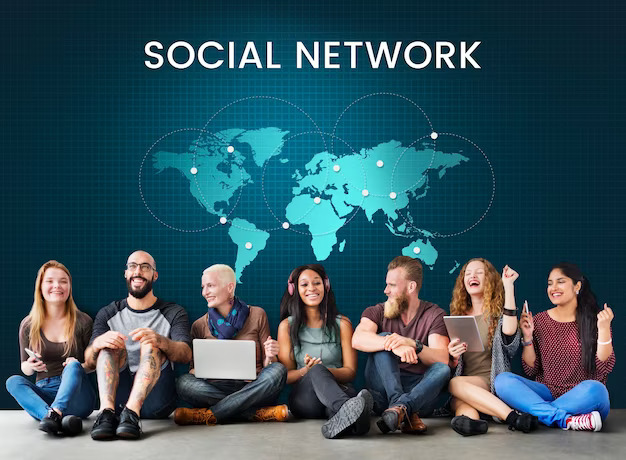Social Networking in Era of Web 3.0

The evolution of the internet has transformed the way we connect, interact, and consume information. From Web 1.0, which focused on static web pages, to Web 2.0, which introduced dynamic and interactive web applications, we are now witnessing the emergence of Web 3.0, also known as the Semantic Web.
In this new era, social networks are expected to undergo significant changes in terms of features, functionality, and user experience. This article will explore the impact of Web 3.0 on social networks and how it will change the way we connect and communicate with each other.
Contents
What is Web 3.0?
Web 3.0 is the next generation of the internet that aims to provide a more intelligent, connected, and decentralized web experience. It is based on the idea of the Semantic Web, which enables machines to understand and interpret web content in a more meaningful way.
Web 3.0 is characterized by the use of blockchain technology, artificial intelligence, machine learning, and decentralized networks.
The Role of Social Networks in Web 2.0
Social networks played a significant role in shaping the internet as we know it today. They allowed users to connect and communicate with each other in real-time, regardless of their location.
Social networks made it possible for people to create and share content, build communities, and engage in discussions. They provided a platform for businesses to reach out to their customers and promote their products and services.
Artificial Intelligence Integration
Artificial intelligence (AI) is one of the most significant technological advancements of our time, and it is expected to play a crucial role in Web 3.0. Social networks are likely to integrate AI to provide users with a more personalized experience.
AI can analyze user behavior and preferences to suggest content, products, and services that are relevant to them. Additionally, AI-powered chatbots can assist users in their interactions with businesses and provide them with real-time support.
The Future of Social Networks in Web 3.0
Social networks have become an integral part of our lives, enabling us to connect with friends and family, share experiences, and consume content. With the advent of Web 3.0, social networks are expected to undergo significant changes, as they will need to adapt to the new technological landscape.
Here are some of the ways in which social networks are likely to change in Web 3.0:
Decentralization
Web 3.0 is based on the principle of decentralization, which means that there is no central authority controlling the network. Social networks will need to embrace this principle and become more decentralized, enabling users to have more control over their data and interactions.
Interoperability
Web 3.0 will enable different networks and applications to communicate with each other seamlessly. Social networks will need to be interoperable, enabling users to connect and communicate with each other across different networks.
Personalization
Web 3.0 will enable machines to understand and interpret user behavior, preferences, and interests in a more meaningful way. Social networks will need to leverage this capability and provide a more personalized user experience.
Trust and Security
Web 3.0 will enable secure and transparent transactions through the use of blockchain technology. Social networks will need to prioritize trust and security to protect user data and prevent fraud.
The Impact of Web 3.0 on Social Networks
The emergence of Web 3.0 will have a profound impact on social networks. Here are some of the ways in which Web 3.0 will change the social networking landscape:
Data Ownership
Web 3.0 will enable users to have more control over their data. Social networks will need to adopt a more user-centric approach and enable users to own and control their data.
Monetization
Web 3.0 will enable new ways of monetizing social networks. Social networks will be able to leverage blockchain technology to enable micropayments, tipping, and other forms of monetization.
Content Discovery
Web 3.0 will enable machines to understand and interpret web content in a more meaningful way. Social networks will be able to leverage this capability to provide more relevant and personalized content to users.
Community Governance
Web 3.0 will enable decentralized networks that are governed by the community. Social networks will need to embrace this principle and enable users to participate in the governance of the network.
Conclusion
The emergence of Web 3.0 will bring significant changes to the social networking landscape. Social networks will need to embrace decentralization, interoperability, personalization, and trust and security to adapt to the new technological landscape.
Users will have more control over their data, new ways of monetization will emerge, and content discovery will become more personalized. Moreover, community governance will become a crucial aspect of social networks.
Web 3.0 is still in its early stages, and it remains to be seen how social networks will adapt to the new technological landscape. However, it is clear that Web 3.0 will bring significant changes to the way we connect and communicate with each other.
FAQs
1. What is Web 3.0?
Web 3.0 is the next generation of the internet that aims to provide a more intelligent, connected, and decentralized web experience. It is based on the idea of the Semantic Web, which enables machines to understand and interpret web content in a more meaningful way.
Web 3.0 will bring significant changes to the social networking landscape. Social networks will need to embrace decentralization, interoperability, personalization, and trust and security to adapt to the new technological landscape.
Web 3.0 will enable users to have more control over their data, new ways of monetization will emerge, and content discovery will become more personalized. Moreover, community governance will become a crucial aspect of social networks.
Social networks can embrace decentralization by enabling users to have more control over their data, adopting a more user-centric approach, and enabling users to participate in the governance of the network.
5. When will Web 3.0 become mainstream?
Web 3.0 is still in its early stages, and it remains to be seen when it will become mainstream. However, it is clear that Web 3.0 will bring significant changes to the way we interact and consume information on the internet.
